

 Article
Article


Ronald Trzcinski Professor of Business Administration
Venkatesan is an expert in customer relationship management, marketing metrics and analytics, and mobile marketing.
Venkatesan’s research focuses on developing customer-centric marketing strategies that provide measurable financial results. In his research, he aims to balance quantitative rigor and strategic relevance.
In 2012 Venkatesan published “Coupons Are Not Just for Cutting Prices” in Harvard Business Review. He also co-wrote “Measuring and Managing Returns From Retailer-Customized Coupon Campaigns,” published in the Journal of Marketing in 2012. He is co-author of the book Cutting-Edge Marketing Analytics: Real World Cases and Data Sets for Hands-on Learning.
B.E., Computer Science, University of Madras, India; Ph.D., Marketing, University of Houston
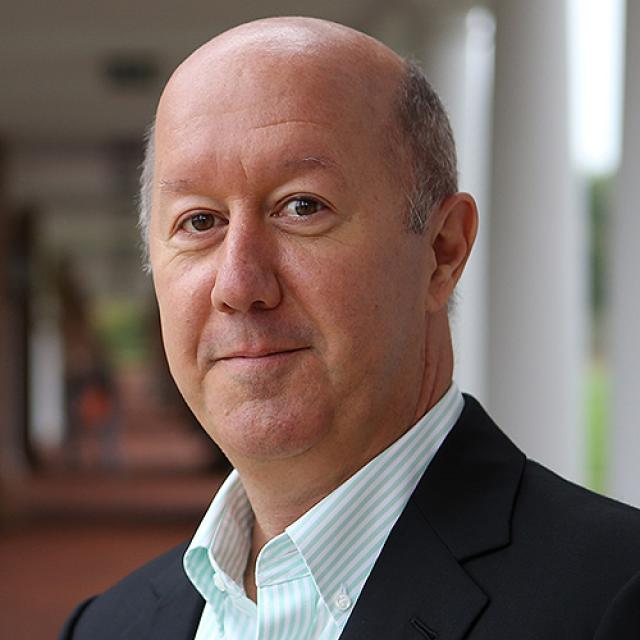
James C. Wheat Jr. Professor of Business Administration
Warnock is an expert in international capital flows, as well as international portfolio allocation and financial sector development in emerging markets.
Before coming to Darden in 2004, Warnock was a senior economist in the international finance division of the Board of Governors of the Federal Reserve System and taught at Georgetown University. Warnock’s international experience includes two years as a Peace Corps volunteer in Malawi’s Thyolo District. His professional career started on Wall Street, where he was a commodity trading adviser.
B.A., Johns Hopkins University; Ph.D., University of North Carolina at Chapel Hill
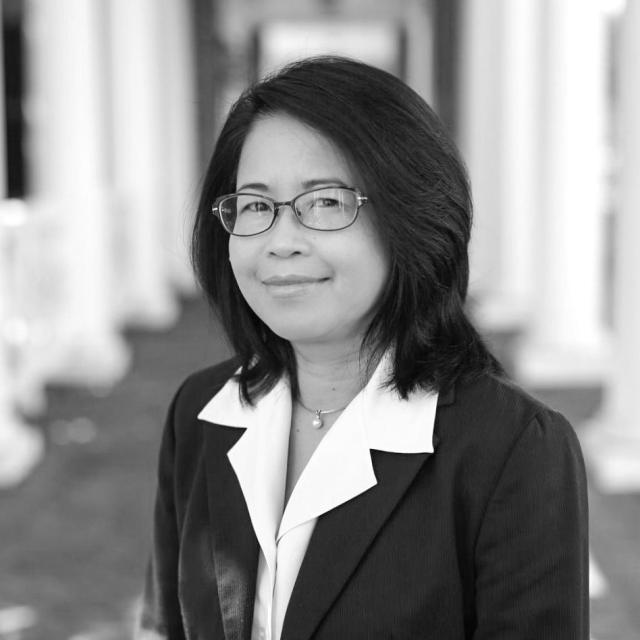
Batten Institute Fellow and Senior Lecturer
Veronica Cacdac Warnock is senior lecturer and Batten Institute Fellow at Darden. Her research focuses on financial sector development and housing. Her teaching and international consulting work is dedicated to transforming societies around the world.
Prior to coming to UVA in 2005, Veronica was senior economist and director at Mortgage Bankers Association (of America) where she was responsible for U.S. economic and housing sector forecasts, econometric analyses and industry survey systems.
B.A., Ateneo de Manila University; Ph.D., Fordham University
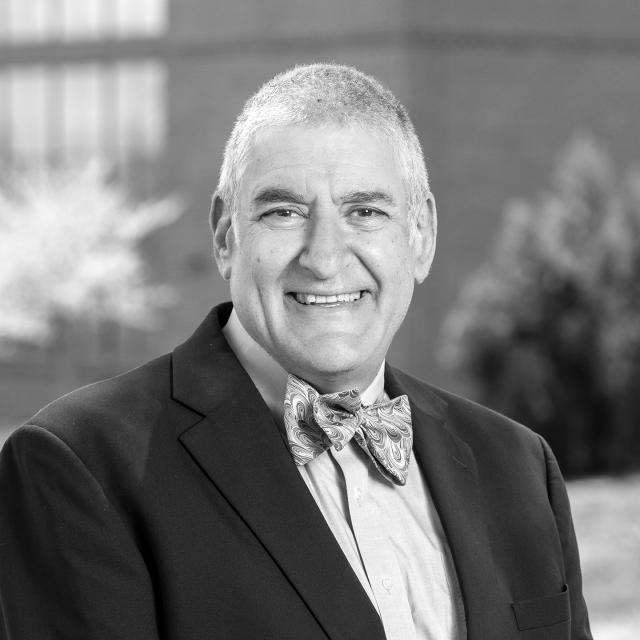
Oliver Wight Professor Emeritus of Business Administration
Weiss is a top authority in many aspects of manufacturing, including inventory control, manufacturing planning and scheduling, manufacturing project management, materials management, service industry operations, total productive maintenance and lean systems.
Weiss is the author of numerous articles in the areas of production management and operations research and has extensive consulting experience for both manufacturing and service companies in the areas of production scheduling, workflow management, logistics, lean conversions and total productive maintenance.
B.S., B.A., MBA, Ph.D., University of Pennsylvania
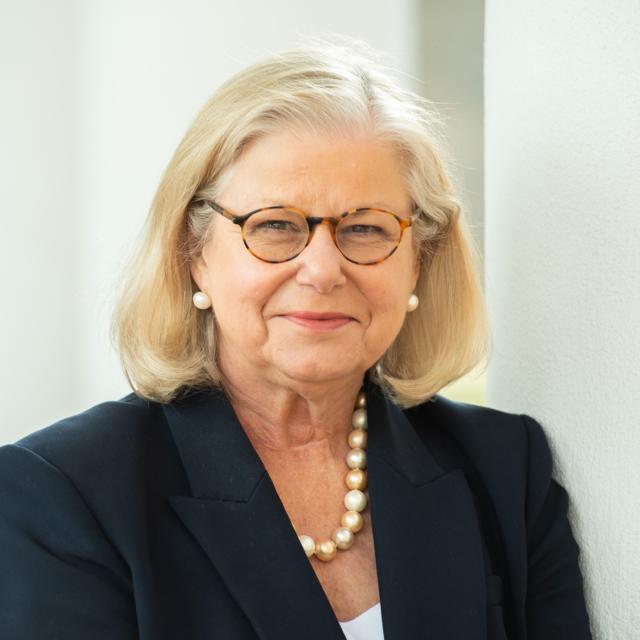
Marjorie R. Sands Associate Professor of Business Administration
West is an expert on organizational communication, particularly during times of change.
West was instrumental in the 2003 inception of the Darden/Curry Partnership for Leaders in Education (PLE) to strategically combine the most innovative thinking in business and education to provide education leaders with skills necessary for managing schools. West served as the academic director and continues to be active in the PLE’s School Turnaround Specialist Program, now the most established turnaround program in the country.
She is the university faculty liaison to the FBI National Academy in Quantico, Virginia. West also directs a Darden faculty team that teaches in the summer orientation program for the Secretary of Defense Corporate Fellows program that places active-duty military officers in corporations for a one-year fellowship.
West has consulted for many organizations, including the Louisiana Department of Education and Mississippi State University Colleges of Business and Education.
B.S.Ed., The University of Tennessee, Knoxville; M.Ed., Kent State University; Ed.D., Lehigh University
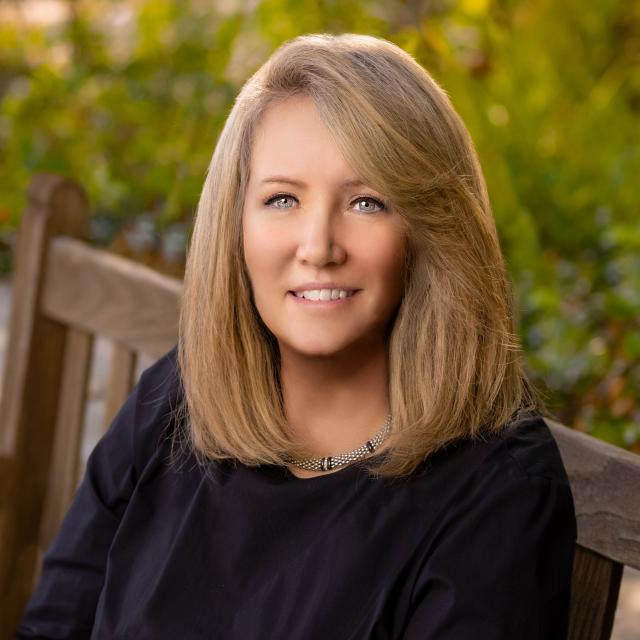
Frank M. Sands Sr. Associate Professor of Business Administration
Whitler is an authority on marketing, with expertise in marketing strategy, brand management, and marketing performance. Her research centers on understanding how a firm’s marketing performance is affected by its C-suite and board.
A prolific writer as well as researcher, Whitler has authored nearly 100 articles related to C-level marketing management challenges and is a contributor for Forbes and CMO.com. Social Media Marketing Magazine named her one of the Top 100 Marketing Professors on Twitter.
Whitler has held leadership roles, including GM and CMO positions, within the consumer packaged goods and retailing industries, including Procter & Gamble, David’s Bridal and PetSmart. She has helped build $1B+ brands, including Tide, Bounce, Downy and Zest.
B.A., Eureka College; MBA, University of Arizona Eller School of Business; M.S., Ph.D., Indiana University Kelley School of Business
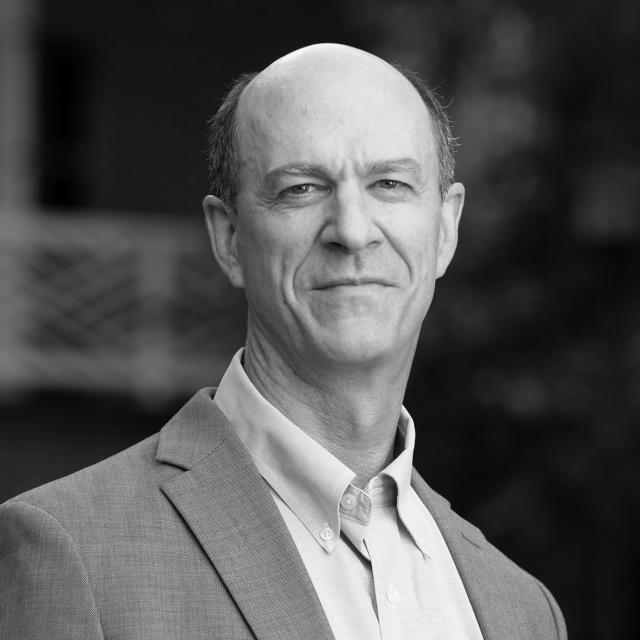
Ruffin Professor of Business Administration; Director, Olsson Center for Applied Ethics; Director, Doctoral Program
Wicks specializes in ethics. He is an expert in international business ethics, corporate social responsibility and ethics in public life.
Wicks’ research interests include stakeholder responsibility, stakeholder theory, trust, health care ethics, total quality management and ethics, and entrepreneurship. Wicks also specializes in religion and public life, particularly as it pertains to businesses.
Wicks is co-author of three books — Managing for Stakeholders: Survival, Reputation and Success; Business Ethics: A Managerial Approach; and Stakeholder Theory: The State of the Art. He has published more than 30 journal articles in business ethics, management and the humanities.
B.A., University of Tennessee, Knoxville; M.A., Ph.D., University of Virginia
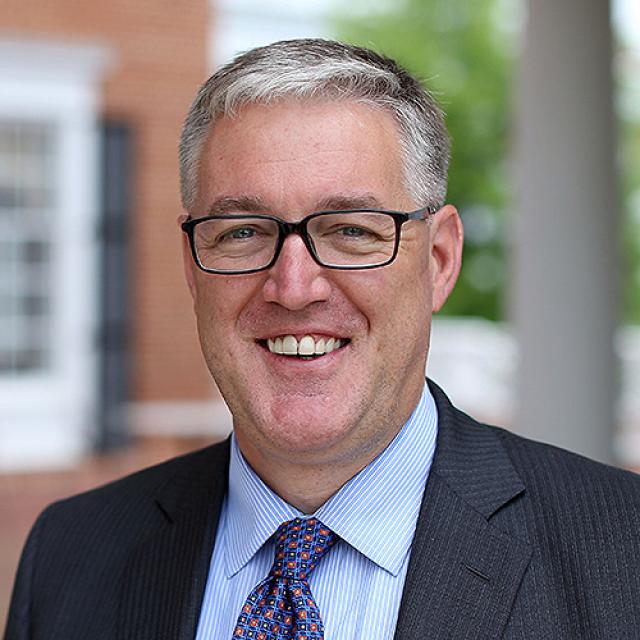
NewMarket Corporation Professor of Business Administration
Wilcox has four specific areas of expertise: marketing financial services, branding, marketing for nonprofits and public policy, and marketing.
His research, focused on the marketing of financial services and its interface with public policy, has appeared in leading marketing and finance journals such as the Journal of Marketing Research, Management Science, Marketing Science and the Journal of Business. He is a frequent contributor to Forbes and is the author of the popular book Whatever Happened to Thrift? Why Americans Don’t Save and What to Do About It. The book was named one of the Top Five Business Books of the Year by Kiplinger. He also wrote “Private Enterprise’s Role in Increasing Savings,” a chapter of Franklin’s Thrift: The History of a Lost American Virtue.
Wilcox, a former economist for the U.S. Securities and Exchange Commission, has served as a consultant for Pratt & Whitney, Sikorsky, Timken, Johnson & Johnson and numerous other companies.
A.B., Xavier University; M.S., Ph.D., Washington University

Postdoctoral Research Associate, Mayo Center for Asset Management
Joonsung (Francis) Won holds a Ph.D. in finance from the Zicklin School of Business, Baruch College, CUNY. His research delves into financial intermediation (banking), corporate finance, and behavioral finance. Joonsung is proficient in Python, STATA, R, SAS, and Matlab, and fluent in both English and Korean.

Dale S. Coenen Free Enterprise Professor of Business Administration
Yang is an expert on China — its labor markets, financial systems and phenomenal growth, which have made it an economic contender. His broader research expertise includes economic development and growth, comparative economic systems, as well as labor and demographic economics in the context of emerging markets. A native of China, Yang has co-edited three books on economic reforms in China and served on the editorial boards of China Economic Review, Comparative Economic Studies, Journal of Demographic Economicsand Pacific Economic Review.
His wide-ranging research covers household behavior, education, savings and investment, wage structure, population policies, trade and labor markets, income distribution, analysis of famines, economic structural transformation and long-term growth.
He has consulted with international organizations such as the World Bank and Hong Kong Monetary Authority, as well as leading businesses such as The Conference Board and McKinsey. He is president of the Association for Comparative Economic Studies, and he was recently elected by the Ministry of Education in China to the Chang Jiang Chair Professorship.
B.A., University of California at Los Angeles; Ph.D., University of Chicago